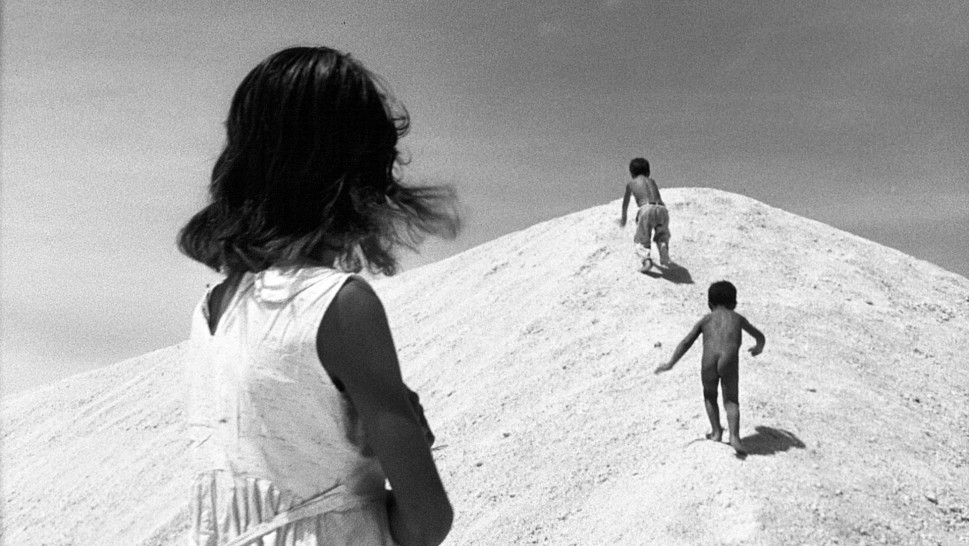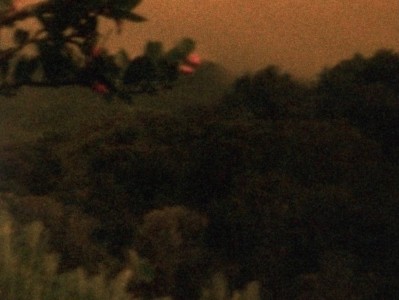
Araya
Venezuela/France, 1959, 35mm, black & white, 90 min.
Spanish with English subtitles.
Print source: Kino Lorber
Released in 1959 and directed by Margot Benacerraf, who would go on to found the Cinemateca Nacional in Venezuela, Araya is a breathtaking and intimate documentary portrayal of the self-sacrificing souls who inhabit the Araya Peninsula of Venezuela, toiling from day to night and night to day. Following several characters who work monotonous, drudging patterns on the peninsula in order to survive its harsh terrain, Benacerraf calls attention to the archaic and inhumane methods of manual labor that the Spanish monarchy instilled on their colonized land centuries before. The Araya Peninsula is barren, and survival is dependent on the natural salt mines and fishing in the Caribbean Sea. From birth until death, all of Araya’s inhabitants dedicate their existences to these means of subsistence on land where nothing grows. The film culminates in the appearance of industrial machinery, representing an end to the brutal conditions of manual labor on the peninsula, yet introducing a new calamity: How will the manual laborers now make a living on land that has nothing else to provide? With the arrival of modernization to the peninsula, Araya serves as a bittersweet time capsule that preserves a way of life and ancient traditions that existed for centuries and would soon become extinct. The scintillating images of the salted terrain and sun reflections on the seawater provide the film with a beauty that works in tension with the trodden and dedicated characters who pass through the frames. This striking work of poetic realism is one of only two films directed by Benacerraf, and following its premiere at Cannes in 1959, Araya virtually disappeared for decades. – Alexandra Vasile
The physical sites of our world hold countless layers of history. In some places, we can immediately see them, and in others, the traces of the past lie just outside our field of view. Following her feature films Señoritas (2013) and This Time Tomorrow (2016), Lina Rodríguez reunited with her sound designer to examine a familiar place: the area surrounding Lake Guatavita, which inspired the legend of El Dorado. The filmmaker’s cinematic eye sweeps over this sacred landscape, normally filled with tourists—capturing the intensity of the light, the textures of the mountains, the profound scope of the landscape, the movement of the wind and the flow of the water. Filmed using a Samsung S8 smartphone camera and firmly rooted in the contemporary moment, Rodríguez’ short reframes this disturbing place, allowing us to consider how the natural world redefines our sense of history.
-
Playa Grande
Directed by Amanda Lucía Turquetto and Héctor Bernabó.
Argentina, 1943, DCP, black & white, 13 min.
No dialogue.
DCP source: Museo del Cine de Buenos Aires
This is one of the four films produced by the Instituto Cinematográfico del Estado in the 1940s under the premise of showing different regions of Argentina through visually plastic and formally sophisticated films. Amanda Lucía Turquetto, a graphic designer close to the concrète movement, directed at least two of these, Vendimia and Playa Grande, the latter together with the artist Héctor Bernabó (alias Carybé). The awakening of the beachtown refers at some point to the beginning of Man with a Movie Camera, but then certain shots bring the film closer to the Nice described by Jean Vigo—although without irony. Other times, the fascination with water is reminiscent of Ralph Sterne’s H20. It is possible that these films were on the minds of the directors, but beyond these references appears a beautiful description of women, one that drives them away from the cliché of the mother to which almost all Argentine cinema had destined them; instead we see delicate Amazons who have taken over the beach as if it were a space to which only they deserve access. – Andrés Levinson











